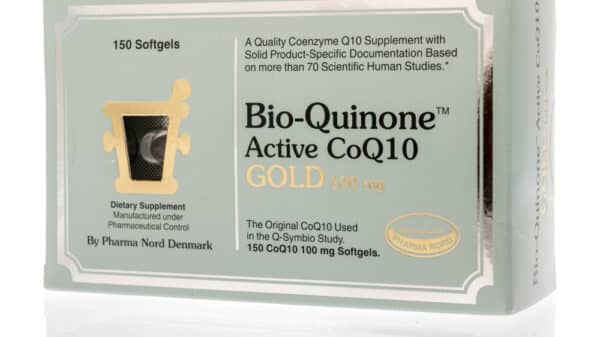Addiction can feel like an all-consuming beast, relentlessly gnawing away at the very core of who you are. You might resonate with the experience of it sneaking into your life, uninvited and unseen, gradually entwining itself in your relationships, career, and personal well-being. Maybe you’ve felt the heaviness of despair and isolation that often accompanies addiction, as if each day is a battle you’re destined to lose. But here’s the truth: overcoming addiction isn’t just a dream; it’s a journey many have embarked on, and with the right mindset, a solid support network, and effective resources, you can reclaim your life.
Mental Health & Addiction Treatment
The link between mental health issues and addiction is as strong as it is common. If you’re grappling with addiction, you might also be wrestling with anxiety, depression, or past trauma. This dual struggle illustrates the importance of addressing both addiction and any underlying mental health conditions. Don’t underestimate the power of seeking professional treatment. Opt for a program that recognizes the intricate relationship between mental health and addiction, providing a well-rounded approach to healing.
One resource worth considering is the New Hope Healthcare Institute in Knoxville, which emphasizes dual diagnosis treatment. This kind of program not only tackles addiction head-on but also dives deep into the mental health aspects, helping clients heal their entire selves—not just the symptoms. Remember, you don’t have to face all of this alone; there are people ready to help you.
Build A Strong Support Network
Isolation can feel like a heavy cloak, suffocating hope and resilience. If you’re trying to break free from addiction, surround yourself with individuals who lift you up and understand your struggles. Reach out to friends, family, or recovery professionals who genuinely care about your well-being. You might also consider joining a support group where you can connect with others navigating similar challenges.
In these spaces, you’ll find understanding and encouragement that can fuel your motivation and provide the strength to tackle moments when it feels tough to keep going. If you’re feeling lost, just talking to someone who gets it can make all the difference.
Set Realistic Goals And Celebrate Progress
It’s essential to embrace that recovery is not a sprint; it’s a marathon made up of many small steps. While it can be tempting to aim for grand goals, focusing on realistic and achievable milestones will make your journey feel much more manageable. Maybe start by aiming to reduce the frequency of use, scheduling a specific number of therapy sessions, or simply staying sober for a single day. Each of these milestones deserves recognition—celebrate them!
Recognizing your progress, no matter how small, can serve as a powerful reinforcement that you are moving in the right direction. Celebrate each victory; it’s proof that progress is not only possible but happening, bit by bit.
Replace Negative Habits With Healthy Alternatives
Shedding an addiction often means letting go of old, unhealthy habits—but that’s only half the battle. The other half involves embracing new, healthy activities that bring you joy and fulfillment. Reflect on what makes you happy or relaxed. Is it exercise, exploring nature, or maybe picking up a creative hobby? Integrating these activities into your daily life can help you build a fulfilling routine that aligns with your recovery goals.
You’re not just replacing negative patterns; you’re creating a life filled with positivity and purpose. Remember, each day brings a chance to engage with something uplifting.
Practice Mindfulness And Self-Compassion
Mindfulness can be one of those game-changing tools that helps you stay anchored in the present moment. It creates a space where you can observe your cravings without judgment, allowing you to respond rather than react. This practice can feel transformative, enabling you to step back from negative thought patterns and emotional triggers.
Adding self-compassion into the mix is just as vital. It’s all too easy to slip into the cycle of self-blame or guilt during recovery, but remember to treat yourself with the same kindness you would offer a friend. Recovery is a path filled with ups and downs, and embracing this journey with compassion can make a world of difference in how you navigate it.
Seek Professional Help When Necessary
Addiction can be a complex beast that sometimes requires more than self-guided efforts. Seeking professional help does not equate to weakness; rather, it’s a powerful step towards taking control of your life. Addiction counselors, psychologists, and medical professionals can provide tailored strategies for managing withdrawal symptoms, pinpointing triggers, and formulating personalized plans that resonate with your unique situation.
If you ever feel overwhelmed, don’t hesitate to reach out for help. Acknowledging when you need support is a courageous choice and can be a critical turning point in your recovery.
Cultivate A Positive Environment
Think about your surroundings. They can have an enormous impact on your recovery journey. Aim to create an environment that supports your healing—one that is free from negativity and access to triggers. This means distancing yourself from places or people that may steer you back towards old habits.
Surround yourself with reminders of your commitment to recovery: uplifting music, motivating quotes, or comforting routines that instill a sense of safety and positivity. Believe it or not, cultivating a supportive environment can be a key factor in maintaining your journey back to health.
The path to overcoming addiction is undeniably challenging, but it is also filled with opportunities for profound growth and transformation. By focusing on mental health, building a solid support network, setting realistic goals, and replacing unhealthy habits, you can gradually reclaim control over your life. Remember, recovery is a personal journey—each step you take, no matter how small, is a victory in its own right. Embrace the process, be gentle with yourself, and trust that with the right resources, tools, and mindset, you can thrive, free from the chains of addiction.
Image Source: Unsplash
































